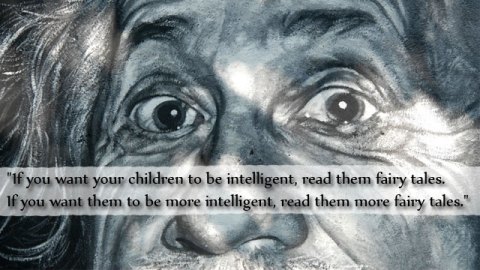Fairy Tales: From Fact to Folklore

Sign up for Big Think on Substack
The most surprising and impactful new stories delivered to your inbox every week, for free.
Professor Richard Dawkins was once again recently the centre of controversy after the media suggested that he had claimed children should not be read fairy tales:
“I think it’s rather pernicious to inculcate into a child a view of the world which includes supernaturalism…”
Dawkins subsequently claimed his views had been taken out of context and misrepresented:
“@RichardDawkins thinks Santa Claus causes children ‘great harm’ http://t.co/27eOdwnR2I” Total lie. Does the Daily Mail EVER print truth?
— Richard Dawkins (@RichardDawkins) June 4, 2014
Sign up for Big Think on Substack
The most surprising and impactful new stories delivered to your inbox every week, for free.





